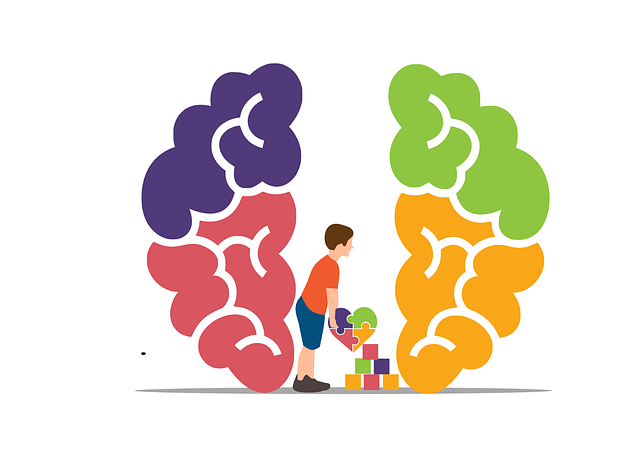Mental health challenges, especially Lakewood Panic Disorder (LPD), are a significant concern in contemporary society. Anxiety attacks therapy is pivotal for managing LPD, offering personalized coaching programs that empower individuals with effective coping strategies. A multifaceted approach combining evidence-based techniques, mental health education, and emotional intelligence development is crucial for success. Tailoring therapy to individual needs through a personalized approach enhances effectiveness and fosters resilience. Implementing structured wellness coaching programs, incorporating cognitive-behavioral techniques and mindfulness practices, leads to improved symptom management and well-being. Continuous evaluation and integration of insights from various fields ensure the refinement of these programs, ultimately aiming to create supportive environments for sustained mental wellness.
Mental wellness coaching programs have emerged as a powerful tool in addressing growing mental health challenges, particularly anxiety disorders like Lakewood Panic Disorder. This article delves into the development of effective coaching strategies for managing anxiety attacks, focusing on personalized approaches tailored to individual needs. We explore key considerations in designing successful interventions, including understanding Lakewood Panic Disorder and evaluating program efficacy. By leveraging these insights, coaches can enhance their ability to support clients navigating anxiety-related struggles.
- Understanding Mental Health Challenges: Unveiling Lakewood Panic Disorder
- Designing Effective Coaching Programs for Anxiety Management
- Personalized Approach: Tailoring Therapy to Individual Needs
- Implementing and Evaluating Success in Wellness Coaching Interventions
Understanding Mental Health Challenges: Unveiling Lakewood Panic Disorder

Mental health challenges, such as Lakewood Panic Disorder (LPD), are a significant concern in today’s society. LPD, characterized by recurrent and unexpected anxiety attacks, can significantly impact an individual’s daily life and overall well-being. Anxiety attacks therapy plays a pivotal role in managing and overcoming this disorder. Through targeted interventions and personalized coaching programs, individuals with LPD can learn coping strategies to navigate their symptoms effectively.
Community outreach program implementation and public awareness campaigns development are essential components in the fight against mental health stigmas. By educating communities about conditions like LPD, these initiatives foster a supportive environment where those affected feel empowered to seek help. Encouraging positive thinking and open dialogue can revolutionize how society perceives and addresses anxiety-related disorders, ensuring better access to resources and therapy for all.
Designing Effective Coaching Programs for Anxiety Management

Effective coaching programs for anxiety management require a multifaceted approach that addresses the root causes and symptoms of anxiety disorders, such as Lakewood Panic Disorder and Anxiety Attacks Therapy. A well-designed program should incorporate evidence-based techniques tailored to individual needs. Mental health education plays a crucial role in this, empowering individuals with knowledge about their condition and coping strategies.
Coaching sessions should foster emotional intelligence, helping clients recognize and manage their emotions effectively. Techniques like mindfulness meditation, cognitive behavioral therapy (CBT), and relaxation exercises have proven beneficial in reducing anxiety. Trauma support services may also be integrated to address any underlying trauma contributing to the anxiety. By combining these strategies, coaches can create a supportive environment that enables clients to develop resilience and lead more fulfilling lives free from debilitating anxiety symptoms.
Personalized Approach: Tailoring Therapy to Individual Needs

In the realm of mental wellness coaching, a personalized approach is revolutionary. Every individual’s journey to improved mental health is unique; thus, therapy should be tailored accordingly. This method involves understanding the specific needs, challenges, and aspirations of each person. For instance, those seeking treatment for Lakewood Panic Disorder and Anxiety Attacks require specialized care. A coach must be adept at providing Trauma Support Services and incorporating effective Stress Management techniques suited to the individual’s circumstances.
By offering a customized experience, mental wellness coaches can significantly enhance the effectiveness of therapy. This tailored therapy ensures that the support provided resonates with the client on a deeper level, fostering a sense of connection and encouraging active participation in their healing process.
Implementing and Evaluating Success in Wellness Coaching Interventions

Implementing effective wellness coaching interventions requires a structured approach to ensure success. This involves designing programs that cater to individual needs, often tailored for specific mental health challenges like Lakewood Panic Disorder and Anxiety Attacks. Coaches play a pivotal role in guiding clients through personalized strategies, from cognitive-behavioural techniques to mindfulness practices, to help manage symptoms and improve overall well-being.
Evaluation is key to measuring the impact of these programs. Using evidence-based assessment tools and collecting client feedback allows for continuous improvement. This process not only refines coaching methods but also strengthens the body of knowledge in mental health education programs design. By integrating insights from Social Skills Training and Mental Health Policy Analysis and Advocacy, coaches can contribute to broader systemic changes, fostering environments that support and sustain mental wellness.
Mental wellness coaching programs, particularly those designed to address Lakewood Panic Disorder and anxiety attacks, have proven effective in providing personalized therapy. By tailoring interventions to individual needs, coaches can significantly enhance overall well-being. Implementing and evaluating these programs ensures their success and allows for continuous improvement, making them valuable tools in managing mental health challenges like anxiety.








